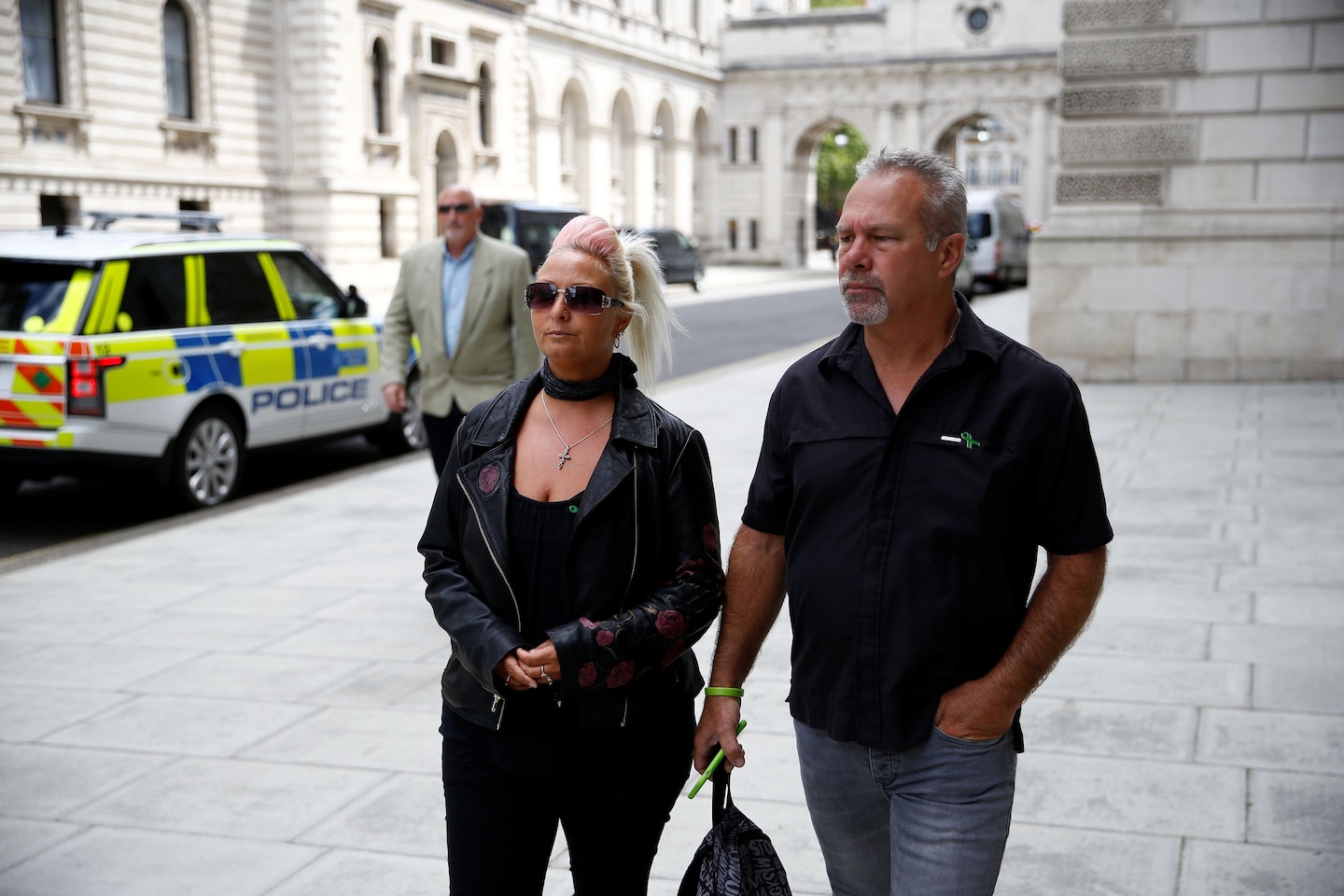U.S. and Britain change diplomatic immunity rules in light of Harry Dunn’s death

In August, Harry Dunn, 19, was killed when his motorcycle was struck by a car driven by Anne Sacoolas, police said.
Sacoolas, the wife of a U.S. official accredited as a diplomat, admitted she was driving on the wrong side of the road when she collided with Dunn. She fled to the United States, despite having told British police that she had no plans to return home. U.S. officials said she had diplomatic immunity.
At the time of the incident, Sacoolas was living with her husband near Royal Air Force Croughton, a station operated by the U.S. Air Force.
The announcement came a day after the issue was raised with Secretary of State Mike Pompeo during his trip to London.
In a separate statement, Raab said, “First and foremost, the U.S. waiver of immunity from criminal jurisdiction is now expressly extended to the family members of U.S. staff at the Croughton Annex, thus ending the anomaly in the previous arrangements and permitting the criminal prosecution of the family members of those staff, should these tragic circumstances ever arise again.”
Raab added: “We have the deepest sympathy for Harry Dunn’s family. No family should have to experience what they have gone through and I recognize that these changes will not bring Harry back.”
When Pompeo met with Prime Minister Boris Johnson on Tuesday, the prime minister “reiterated the need for justice to be done for Harry Dunn and his family,” a Downing Street official said.
The modified immunity agreement pertains to the air base at Croughton. In 1995, the two countries agreed to an arrangement under which U.S. diplomatic personnel could be posted to Croughton — the only other place in Britain outside of London where American diplomats are posted.
Under that agreement, the United States agreed to waive immunity, but this did not apply to family members posted at the base.
After Wednesday’s announcement, Americans who work there and their family members can be prosecuted for acts “performed outside the course of official duties.”
The State Department said in a statement, “Under the arrangement, the United States has extended preemptive, limited waivers of certain diplomatic immunities pertaining to the staff of the Embassy office in Croughton and their family members for acts performed outside the course of official duties that occur on or after July 20, 2020.”
Legal analysts said it was unclear how, if at all, the new rules would affect the Dunn family.
“It doesn’t have any retrospective effect at all,” said Edward Grange, a lawyer specializing in extradition law. He said that “unfortunately, it does little for the Dunn family. But it’s done to prevent this situation arising in the future.”
British prosecutors have charged Sacoolas with causing death by dangerous driving and sought her extradition, a request the United States denied. An Interpol “red notice” for her arrest remains live.
Grange said that Sacoolas is “landlocked to the United States, and that’s likely to be the case for some time.”
Dunn’s mother, Charlotte Charles, told The Washington Post that the changes have “given us the positive vibe that it can’t happen again.”
“One of the main aims when we started this campaign was to make sure that another family would never have to go through what we went through since we lost Harry.”
Dunn’s parents have tirelessly campaigned for justice for their son and said they will continue to push for a judicial review of the case.
“If it’s a good law today, it’s good law last August,” said Radd Seiger, the family’s attorney.
In October, President Trump stunned Dunn’s parents when he told them during a visit to the White House that Sacoolas was in a nearby room and was ready to meet them.
White House officials were skeptical of having Dunn’s parents and Sacoolas in the West Wing simultaneously, but Trump wanted to have a “hug-and-make-up moment” and believed he could resolve the issue, a person with knowledge of the discussions said at the time.
Dunn’s parents declined to participate, although Trump continued to repeat the offer. The parents said that a meeting should take place on British soil and at a time when both sides felt prepared and had legal representation and mental-health support on hand.
“To be thrown into a room together with no prior warning, that’s not good for her mental health, and it’s certainly not good for ours,” Dunn’s mother told “CBS This Morning.”
Trump has called Dunn’s death a “terrible accident,” adding that driving on the wrong side of the road “happens.”
Carol Morello in Washington and John Hudson in Copenhagen contributed to this report.






